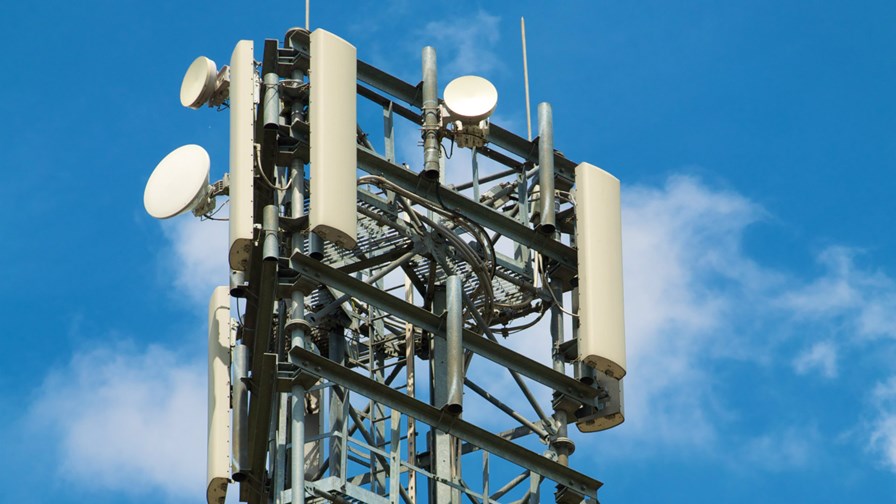Big guns of US 5G are training their sights on a virtually unknown Irish company trying to muscle in on spectrum leasing

via Flickr © Pug50 (CC BY 2.0)
- Claims the Trump administration is leaning on the Department of Defense to subvert tendering process
- Part of the infighting over proposal that the Pentagon open its national 5G network to commercial users
- 350 MHz of 5G spectrum worth at least US$20 billion is up for grabs
AT&T is spitting feathers and the CTIA is foaming at the mouth as Rivada Networks, a comparative unknown in the world of telecoms, has emerged from obscurity to try to secure billions of bucks worth of US 5G spectrum. Up for grabs is the leasing of 350 MHz of mid-band spectrum. To give some idea of its potential value it should be noted that when 70 MHz of spectrum went under the hammer two months ago it raised US$4.45billion.
What is exercising the likes of AT&T, the CTIA (the trade body for US cellular network operators, suppliers and manufacturers) and politicians from both the Democrat and Republican camps) is the pressure alleged to have been applied on the US Department of Defense to expedite and approve Rivada's application (in the form of an RFP or "Request for Proposal") to participate in the gold rush to get hold of 5G spectrum. Critics, and there are many of them, say the result could be a de facto "no bid" allocation of spectrum to a private company that is known to to be favoured by a number of eminent supporters of the current US president.
As TelecomTV reported last week there are moves afoot to have the Pentagon allow commercial companies to share access to its 5G network as part of an effort to deploy what to all intents and purposes would be a national (and nationalised) 5G network. In a comment released to CNN an unnamed administration spokesperson said, "the White House has not taken a position in favor of any company over another with regard to 5G spectrum" adding that "conversations are ongoing but it is still pre-decisional. ["pre-decisional"? For crying out loud!] Regardless, whatever decision is ultimately made will be a result of best cost/benefit for the taxpayer, not any political reasons."
Not everyone believes that to be the case. For example, the Chairman of the House Energy and Commerce Committee Chairman, Frank Pallone of New Jersey and the chair of the the examining subcommittee, Mike Doyle of Pennsylvania, Democrats both, are demanding to know if "the White House has instructed the DoD to proceed immediately to a Request for Proposal in order to move forward toward a national 5G network." If that were the case and an allocation of 5G spectrum was awarded to a company that has not taken part in a competitive bidding process there would be severe ramifications not only for commercial 5G but also for US national security.
On the Republican side, 19 Senators have expressed deep concern with John Thune of South Dakota saying it would be wrong if 5G spectrum policy were not to "rely on private industry and market forces to foster multiple, facilities-based 5G networks" but instead "nationalizing 5G and experimenting with untested models for 5G deployment."
Rivada failed to win FirstNet tender in 2017
Rivada Networks was founded back in 2004 and is a US-based comms technology business with offices there and in Ireland. The company's current CEO and chairman is the Anglo-Irish businessman Declan Ganley and Rivada has the financial backing of Peter Thiel, the German-American billionaire entrepreneur and venture capitalist. Although still not widely known now, Rivada was even less known in 2107 when it sought to run the First Responder Network Authority, (more commonly called "FirstNet) a US nationwide public services broadband network agency. Authorised by Congress, $7 billion and 20MHz of radio spectrum was allocated to the project, the contract for which was won by AT&T. Rivada appealed the decision in federal court and lost.
The court judgement stated that FirstNet had examined the Rivada bid and concluded that the company "did not itself have material experience in...building and operating a nationwide wireless network". Furthermore it had no experience at all in "supervising a project of the size and scope" of America's public services network.
Speaking to the Irish Times newspaper Declan Ganley said that he is completely confident that Rivada would win any tender for the available spectrum and "wants to go into the ring and win it' in a competitive bidding process. He pooh-poohed CNN's report that the Trump administration is leaning on the Department of Defense to award a contract to the company without having to go to all the fuss and bother of submitting a detailed competitive tender.
Meanwhile, Joan Marsh, who is in charge of Regulatory Relations at AT&T said any sudden change the tendering process would be “drastic and unproven” while Meredith Atwell Baker, the president and CEO of the CTIA (once known as the Cellular Telecommunications Industry Association but later as the the Cellular Telecommunications and Internet Association) said any such move would be "a radical departure". That certainly can't be denied. We haven't heard the last of this yet but things might become a little less opaque after the US Presidential Election on November 3, but maybe not.
Email Newsletters
Sign up to receive TelecomTV's top news and videos, plus exclusive subscriber-only content direct to your inbox.




